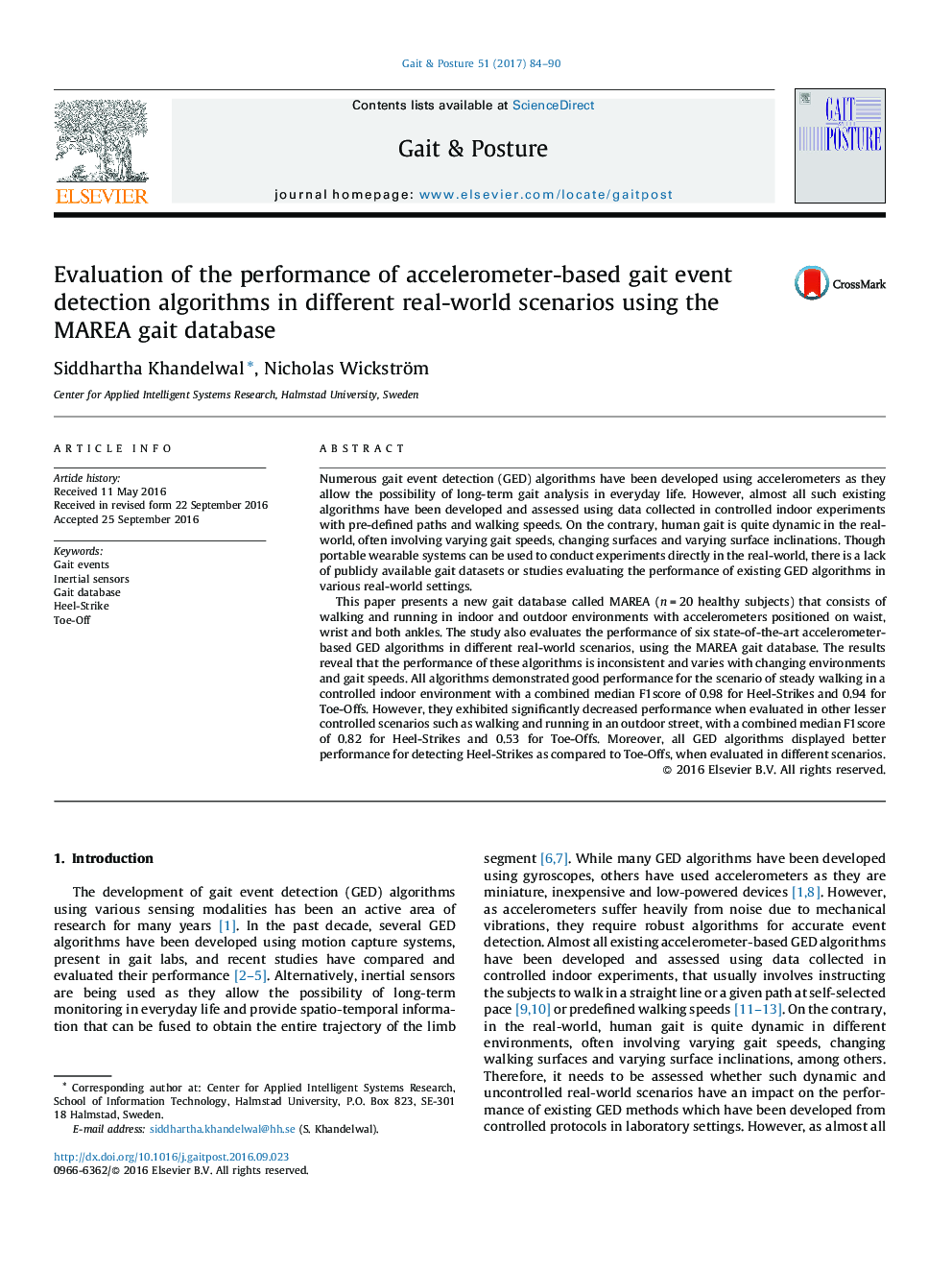| Article ID | Journal | Published Year | Pages | File Type |
|---|---|---|---|---|
| 8798705 | Gait & Posture | 2017 | 7 Pages |
Abstract
This paper presents a new gait database called MAREA (n = 20 healthy subjects) that consists of walking and running in indoor and outdoor environments with accelerometers positioned on waist, wrist and both ankles. The study also evaluates the performance of six state-of-the-art accelerometer-based GED algorithms in different real-world scenarios, using the MAREA gait database. The results reveal that the performance of these algorithms is inconsistent and varies with changing environments and gait speeds. All algorithms demonstrated good performance for the scenario of steady walking in a controlled indoor environment with a combined median F1score of 0.98 for Heel-Strikes and 0.94 for Toe-Offs. However, they exhibited significantly decreased performance when evaluated in other lesser controlled scenarios such as walking and running in an outdoor street, with a combined median F1score of 0.82 for Heel-Strikes and 0.53 for Toe-Offs. Moreover, all GED algorithms displayed better performance for detecting Heel-Strikes as compared to Toe-Offs, when evaluated in different scenarios.
Keywords
Related Topics
Health Sciences
Medicine and Dentistry
Orthopedics, Sports Medicine and Rehabilitation
Authors
Siddhartha Khandelwal, Nicholas Wickström,
